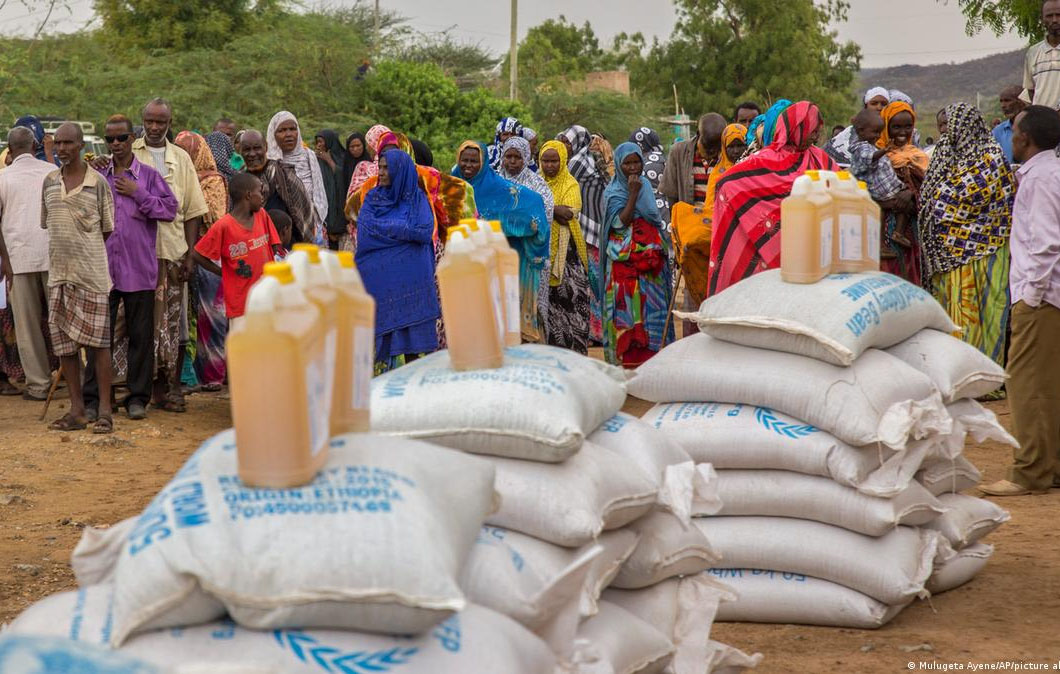
Photo Credit: AP
Countries on Tuesday pledged more than $610 million to address the "critical" humanitarian situation in Ethiopia, where more than 21 million people need aid and a dire food crisis is deepening.The United Nations held a donor conference at their European headquarters to raise funds for aid towards Ethiopia's economic, climate, food and malnutrition crisis.
The UN stated that $1 billion is urgently needed to cover aid for the next three months. Although the UN did not expect to raise the full amount on Tuesday, twenty countries made new pledges. The United States pledged an additional $154 million, while Britain pledged 100 million pounds ($125 million), and the European Union and its member states pledged over 131 million euros ($139 million).
Ethiopians are facing an increasingly dire food and malnutrition crisis, as well as rumbling internal conflicts and economic and climate shocks. The UN estimates that $3.24 billion is needed this year alone to assist four million internally displaced people. Before Tuesday's event, the plan was less than five percent funded.
"The gap remains very wide... We have really to act before it is too late," said Shiferaw Teklemariam, commissioner of the Ethiopian Disaster Risk Management Commission, before the start of the conference. The UN said an initial $1 billion was needed for the urgent aid response through the end of June. It is also needed to prepare for the lean season, from July to September, when around 11 million people are projected to be critically food insecure.
"The humanitarian situation in Ethiopia is critical -- but there is a window to act right now to break the downward spiral," said the UN's humanitarian agency OCHA. Washington also stressed the need for rapid action, saying that millions of people in Ethiopia are facing severe food insecurity. Without more aid, the consequences could be dire.
Moreover, strong measures are needed to ensure that aid reaches its intended destination. Last year, USAID and the UN's World Food Programme temporarily halted all food aid to Ethiopia, alleging a "widespread and coordinated" campaign to divert donated supplies. However, distribution had since resumed, following stringent reforms and the introduction of one of the most detailed and verified processes.
Ramiz Alakbarov, the UN humanitarian coordinator in Ethiopia, said that while the system was working, there was not enough aid to distribute. The war-ravaged northern Tigray region warned last December that it was on the brink of famine. Until there is peace and security in the country, which allows full access for humanitarian players, the humanitarian crisis is likely to continue.






















